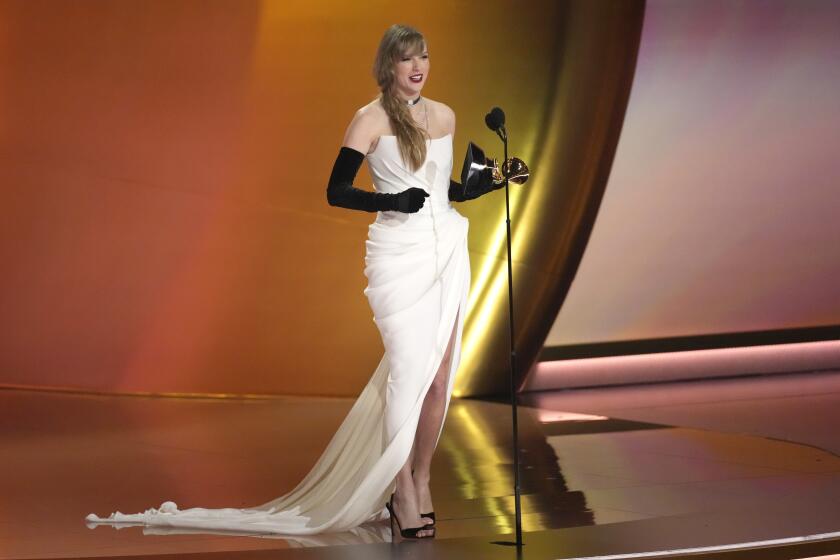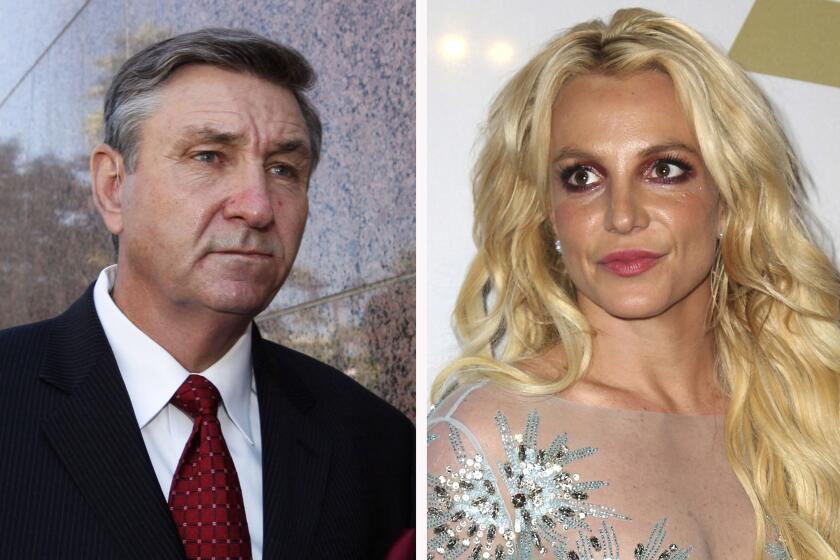Antitrust Officials Said to Be Watching Napster Suit
Maybe Napster had it right.
Federal antitrust investigators are reexamining the online music pioneer’s long-standing claims that the major record labels improperly conspired to keep authorized downloads off the Internet, said people familiar with the matter.
Justice Department officials are closely tracking a court fight in federal court in San Francisco between the labels and the financial backers of the original Napster, the file-sharing network that debuted in 2001 and became emblematic of online piracy.
Napster filed for bankruptcy protection, and the name was bought and assumed by Roxio Inc. in 2002.
The labels are suing venture capital firm Hummer Winblad Venture Partners and German conglomerate Bertelsmann, which owns label BMG, accusing them of contributing to the piracy by the first Napster users.
As part of its defense, Hummer Winblad has alleged that the labels violated antitrust laws by colluding to refuse to license their music to Napster for legitimate distribution.
Antitrust investigators have asked both sides to keep them apprised by passing along filings in the case, said music industry sources who asked not to be identified because of the sensitive nature of the government’s inquiries.
It is unclear whether the review has led to a full reopening of an inquiry that ended in 2003, when the department announced it hadn’t found evidence that the major labels manipulated the digital music market.
Justice Department spokeswoman Gina Talamona declined to comment, but investigators there were previously reported to be examining how present-day prices are set on Apple Computer Inc.’s iTunes Music Store and other authorized services.
The San Francisco suit by Universal Music Group and EMI Group accuses Hummer Winblad and Bertelsmann of having controlled Napster and therefore sharing liability for the massive copyright infringement previously committed by Napster’s tens of millions of users.
Hummer Winblad’s lawyers countered that the labels broke antitrust and copyright laws by refusing to license music to Napster on reasonable terms while sending heavily restricted tracks to two industry-sponsored joint ventures, MusicNet and Pressplay. Those two services had been investigated by the Justice Department from 2001 to 2003.
The Hummer Winblad lawyers turned up discrepancies between what the labels had told the Justice Department about their practices then and what they told others. And the documents that the labels submitted to the Justice Department had some serious omissions, including a full discussion of clauses that guaranteed some labels the same licensing terms that their rivals received.
Those clauses, known as “most-favored-nation” provisions, suggested collusion, said the judge in the Napster case, Marilyn Hall Patel.
The documents were so suspicious that Patel said last month that they were “deliberately misleading.” She ordered additional material turned over under what is known as the “crime-fraud exception” to the privilege that protects communications between lawyers and their clients from disclosure.
Universal and EMI appealed that ruling and this month won a stay until their arguments could be heard by a higher court.
Even before Patel’s ruling, the Justice Department was intrigued. Once it got the Hummer Winblad team’s legal brief, it asked the Universal and EMI attorneys to send along whatever they filed in their defense, a music industry source said.
New York Atty. Gen. Eliot Spitzer also is investigating the most-favored-nation clauses and has issued subpoenas to the major record labels.
Most of the labels declined to comment on the renewed Justice Department interest.
But Jeanne Meyer, EMI North America’s senior vice president, said the company believed that Patel had “misconstrued” the relevant documents.
“EMI was forthright with the Department of Justice in its 2001-03 investigation and cooperated with that inquiry, and we are confident that Judge Patel’s ruling will be reversed,” Meyer said.
More to Read
The biggest entertainment stories
Get our big stories about Hollywood, film, television, music, arts, culture and more right in your inbox as soon as they publish.
You may occasionally receive promotional content from the Los Angeles Times.






